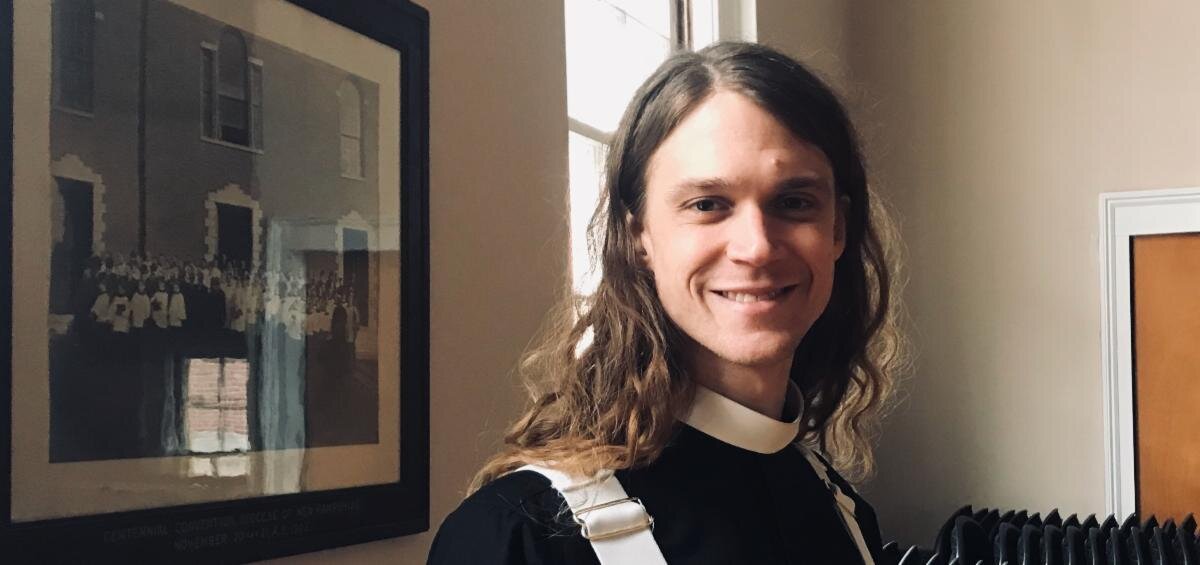Monday, April 6, 2020
The Rev. Nathaniel Bourne
Collect
Almighty God, whose most dear Son went not up to joy but first he suffered pain, and entered not into glory before he was crucified: Mercifully grant that we, walking in the way of the cross, may find it none other than the way of life and peace; through Jesus Christ your Son our Lord, who lives and reigns with you and the Holy Spirit, one God, for ever and ever. Amen.
Reading
John 12:1-11
Six days before the Passover Jesus came to Bethany, the home of Lazarus, whom he had raised from the dead. There they gave a dinner for him. Martha served, and Lazarus was one of those at the table with him. Mary took a pound of costly perfume made of pure nard, anointed Jesus' feet, and wiped them with her hair. The house was filled with the fragrance of the perfume. But Judas Iscariot, one of his disciples (the one who was about to betray him), said, "Why was this perfume not sold for three hundred denarii and the money given to the poor?" (He said this not because he cared about the poor, but because he was a thief; he kept the common purse and used to steal what was put into it.) Jesus said, "Leave her alone. She bought it so that she might keep it for the day of my burial. You always have the poor with you, but you do not always have me." When the great crowd of the Jews learned that he was there, they came not only because of Jesus but also to see Lazarus, whom he had raised from the dead. So the chief priests planned to put Lazarus to death as well, since it was on account of him that many of the Jews were deserting and were believing in Jesus.
Reflection
“The house was filled with the fragrance of the perfume.”
Beauty in the midst of disaster. In the final days of Jesus’ life, he takes time to sit and have dinner with Mary, Martha, and Lazarus, to enjoy the company of friends. And when Mary anoints his feet with expensive and fragrant oil, he doesn’t chastise her, or feel guilty about the cost. He savors the smell that filled the house and reminds his disciples to appreciate the present moment, the time they have with him. He takes time for beauty in the midst of disaster. He knows what’s coming. His fate is sealed. Yet that doesn’t stop him from appreciating the beauty and joy of the life he’s been given. Joy and suffering are not an either or. They can coexist and combine with one another, like veins of ore through solid rock. When I was twenty-two, one of my closest friends died. He had been sick for a long time and got progressively worse over the years. The day I heard the news I went for a walk in the woods to process it all. While on that walk I found the husks of two chestnuts. I looked up to see the tree they came from, a young American chestnut standing above me. I knew the tree wouldn’t survive – the species is all but extinct from a blight that came to this country a century ago. But in the long, serrated leaves casting their shade, I found something ephemeral and beautiful. That tree, those discarded husks – they were a gift, a gift that I needed to nourish me. It’s not that they made the pain go away, but they reminded me that there could be joy alongside sorrow. I’m reminded of these words from Bertolt Brecht:
Motto
In the dark times, will there also be singing?
Yes, there will also be singing.
About the dark times.
Question
Where do you find joy? How are joy and sorrow mixed in the journey of this Holy Week?

